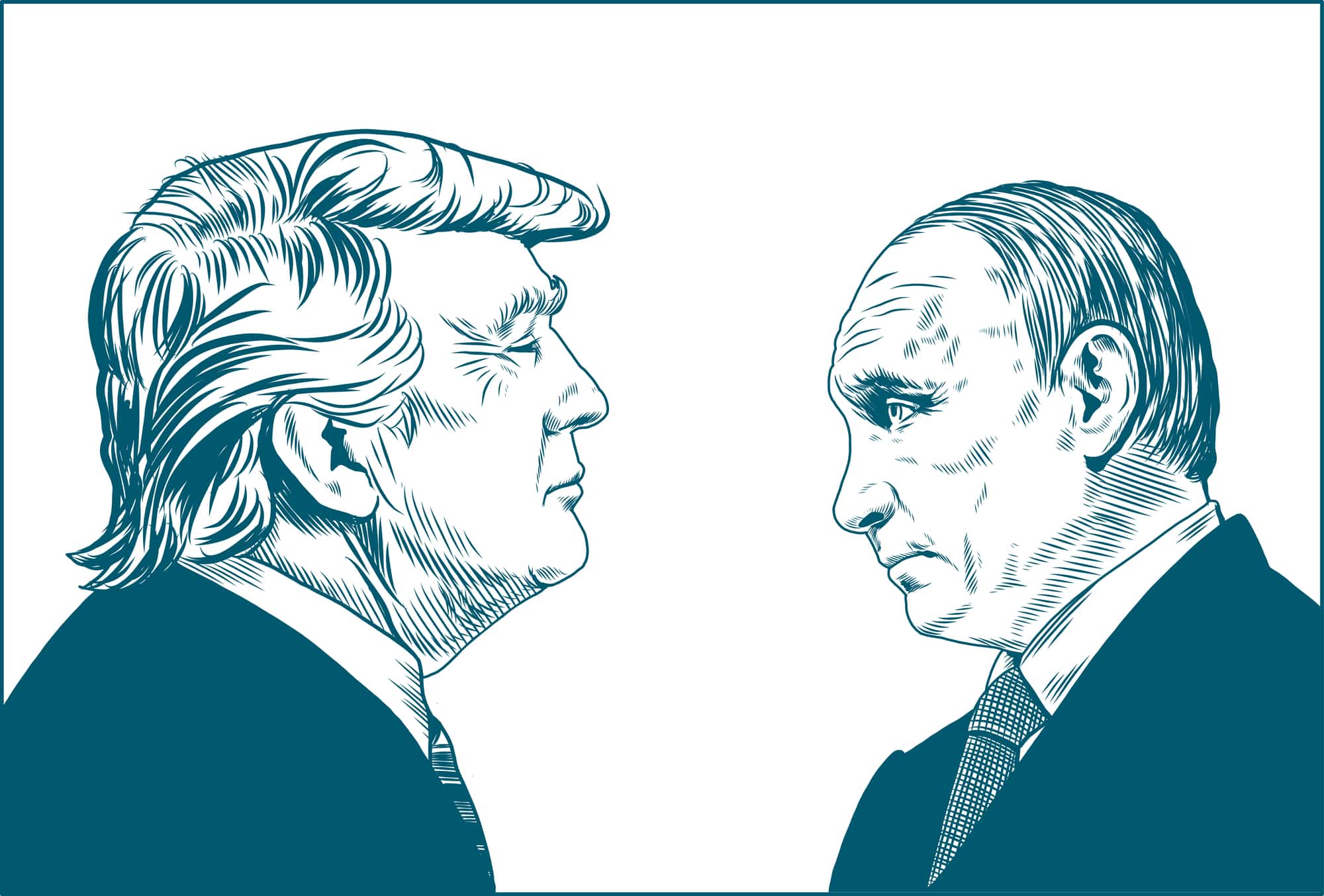Contrary to the conventional wisdom permeating across alternative media, a second Trump administration is likely going to be much more hawkish than expected.
Donald Trump’s national security advisor, Rep. Mike Waltz (R-FL), revealed in an ABC News interview that the administration will be pressuring Ukraine to lower its conscription age from twenty-five to eighteen to continue the NATO-sponsored proxy war against Russia.
“The other thing we are going to need to see is really stabilizing things on the battlefield. And one of the things we’ll be asking of the Ukrainians is, they have real manpower issues,” Waltz stated in the interview.
“Their draft age right now is 26 years old [25], not 18. I don’t think a lot of people realize that they could generate hundreds of thousands of new soldiers. So, when we hear about morale problems when we hear about issues on the front line. Look, if the Ukrainians have asked the entire world to be all in for democracy, we need them to be all in for democracy,” the national security advisor continued.
Essentially, Waltz wants Trump to push for more young Ukrainians to be thrown into the meat grinder against Russia—an endeavor that is increasingly looking like a forlorn hope for Ukraine after each passing day.
Waltz’s views about the United States’ funding of Ukraine have been all over the place throughout the Russo-Ukrainian conflict. At one point, he manifested concerns about the outgoing Joe Biden administration’s unrestrained delivery of funds and weapons to Ukraine despite having no clear definition of what victory looks like on the battlefield. But once he joined the Trump administration, Waltz is sounding like a generic Russia hawk. This was underscored during a November Fox News appearance where Walz revealed that the Trump transition team was working “hand in glove” with the Biden team on Russia-Ukraine matters.
“For our adversaries out there that think this is a time of opportunity that they can play one administration off the other, they’re wrong, and we are—we are hand in glove. We are—we are one team with the United States in this transition,” Waltz stressed.
Trump’s nomination of Lieutenant General (ret.) Keith Kellogg to serve as the Special Envoy for Ukraine and Russia further highlights the high probability of continued hostility toward Russia. Kellogg has not minced words about his opposition to Russia’s actions in Ukraine. During a 2023 appearance on Fox News, Kellogg suggested that the United States should concentrate on “evicting the Russians from Ukraine,” which includes kicking out Russian forces from the Donbas and Crimea.
Further, former CIA analyst and the current Vice President of the America First Policy Institute Frederick H. Fleitz previously joined Kellogg to pen a plan to wrap up the Russo-Ukrainian War in April 2024. The plan’s most salient points include a ceasefire on the present front lines, forcing Russian and Ukrainian officials to enter peace talks, and continued shipment of armaments to Ukraine if it agrees to execute a ceasefire and enter peace negotiations. If the Russians do not implement a ceasefire and commence peace talks, the United States would ratchet up its transfer of weapons to Ukraine.
The Fleitz/Kellog proposal is something the Russians will likely reject outright. Why would the Russians halt their military advances while Ukraine continues receiving Western military support? As the Minsk agreement previously demonstrated, agreements that ceased hostilities between Russia and Ukraine, but failed to address Russia’s security concerns, will just allow Ukraine to gradually reconstitute itself and launch future offensives against Russia. In the Russian view, such a prospect would be unacceptable. Instead of getting dragged into another round of tedious negotiations, Russia may just decide to settle this conflict on the battlefield once and for all.
Even after the United States has delivered roughly $45 billion in military aid to Ukraine since Russia’s February 24, 2022 invasion, policymakers are still convinced they can get the last word against Russia. Now, the Trump team is looking for a consolation prize in annexing Greenland. The Trump administration views the Arctic Circle as a strategic region in the neo-Great Game playing out around the North Pole.
The Northern Sea Route is starting to emerge as one of the most important shipping lanes in the world, which Russia largely controls. Thanks to melting ice caps and innovations in infrastructure, the use of the NSR could slash the time spent transporting cargo and costs associated with said activity. On top of that, there’s no need for countries to worry about the threat of piracy from Somali or Yemeni militants.
In a similar vein, melting polar ice caps would be a boon for Arctic countries to tap into natural resources such as oil and natural gas. Roughly 15% of the world’s undiscovered oil and 30% of the globe’s undiscovered natural gas lies in this region. Rare earth metals, which are all the rage in geopolitical discussions, are also present in the Arctic. From the looks of it, the Arctic Circle will be another region where Russian and American interests will be at loggerheads.
One must wonder why American decisionmakers can’t think of drawing up alternative arrangements with Russia that allows for access to the Arctic Circle without having to be engaged in a dangerous security competition. For most of the liberal internationalist and neoconservative set, all matters of foreign policy are a zero-sum game.
It’s slowly dawning on non-interventionists that a second Trump term will maintain an adversarial posture toward Russia. It is simply wishful thinking to assume that Donald Trump’s negotiation wizardry is going to somehow mend Russo-American relations, especially when Trump is operating on the premise that American primacy must be maintained at all costs. This means Trump will pursue the approach of “escalate to de-escalate” to save face and look tough on the world stage.
If Trump were serious about breaking the uniparty interventionist consensus on foreign policy, he would be bringing the likes of Colonel (ret.) Douglas Macgregor into his administration. Thus far, that has not come to pass, as the Trump team is staffed to the brim with neoconservatives, Israel Firsters, and neocon adjacent types.
As they say, personnel is policy. Until there’s a thorough repudiation of interventionism in U.S. foreign policy circles, we can only expect more geopolitical perfidy to come out of Washington.
































